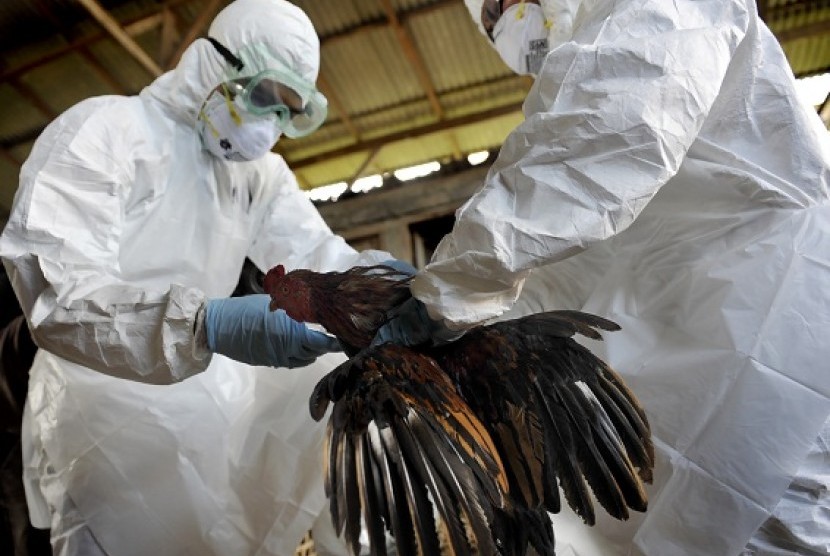REPUBLIKA.CO.ID, SURABAYA - Virus of avian influenza mutates into a more dangerous type and may effect on humans. Director General of Disease Control and Environmental Health (P2PL) at the Ministry of Health, Tjandra Yoga Aditama, explained that virus H5N1 has mutated into (clade) 2.3.2.
The new virus (named 2.1.3 in 2009) has been found in Indonesia, Vietnam, Cambodia, Nepal, India, Bangladesh, Bhutan, Japan, Korea, and Hong Kong. He said that until now no Indonesians had been infected by this new virus.
"The new clade has effected on people in China, Hong Kong, and Bangladesh," he said on Wednesday.
Department of Health warns poultry farmers to be aware of some signs, such as if their poultry suddenly dead. The department also urges them to prevent and monitor the contact between people and the death poultry.
The farmers are recommended to regulary check the logistics, conduct coordination, and monitor. They must also report any development once a case occurs.
The analysis of the DNA of highly pathogenic avian influenza (HPAI) virus results that the current avian influenza case is different from outbreak in 2005. "It may be caused by some genetic influence from abroad," Director General of Livestock and Veterinary Health at the Ministry of Agriculture, Syukur Iwantoro, said.
The Vice Chairman of Doctor Team for Avian Influenza at Dr Soetomo Surabaya Hospital, Laksmi Wulandari, confirmed the new virus and its possibility to effect on humans.
Avian influenza cases recently occurred in several regions in Indonesia, particularly West Java, Central Java and East Java. Sukabumi of West Java and Blitar, Tulungagung and Kediri of East Java become the endemic area. In Central Java, the virus attacked Brebes. Thousands of poultries were death as some breeders ignore the warning.


